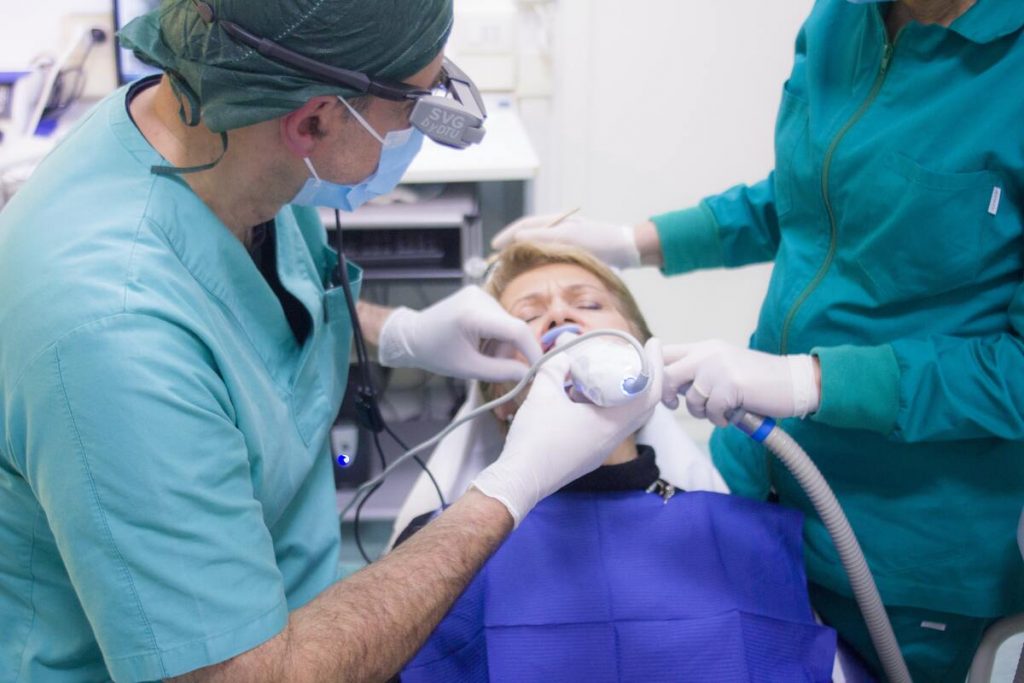Having gum disease can be a very uncomfortable and painful experience, and it can badly affect your teeth and gums long term. If you ever feel like you are suffering with symptoms of gum disease, don’t hesitate to contact your dentist in Nottingham as soon as possible.

The causes
Poor oral hygiene
When you eat and drink, this causes bacteria to sit on your teeth, which will turn to plaque. Usually, when you regularly brush and floss your teeth, this plaque can be wiped away and your mouth stays clean. But if you don’t brush and floss every day, then this plaque will harden, which is called tartar. The acids from this can attack your teeth and cause them to decay. When you have all of this bacteria on your teeth, it can also affect your gums, eventually leading to gum disease if untreated.
Illnesses
Certain illnesses, mainly ones that affect your immune system such as cancer, may cause your teeth to decay at a quicker rate, therefore giving an increased risk of gum disease. Diabetes is also another example, as it affects the way your body uses blood sugar and can increase your risk of developing infections.
Smoking
When you smoke, it makes it harder for your gum tissue to repair itself. This means that if any bacteria damages your gums, it is much harder for them to repair, so you are at higher risk of developing gum disease.
Medications
If you take certain medications for health issues, then this can also increase your risk of developing gum disease. This is mainly caused by medication that lessens the flow of your saliva, as it has protective properties for your teeth and gums. There are also some medications such as antianginal drugs that can cause abnormal growth of your gum tissue, which could lead to gum disease.
The symptoms
The early symptoms of the first stage of gum disease (gingivitis), are usually red and swollen gums and/or bleeding gums when you brush your teeth. As soon as you notice either of these symptoms, be sure to contact your dentist so it can be treated early.
If you ignore the gingivitis symptoms and it is left untreated, it can develop to the second stage of gum disease known as periodontitis. Symptoms of this include a bad taste in your mouth, bad breath, collections of pus under your teeth and gums and more. This can be a really painful and uncomfortable time, so make sure you receive help from your dentist as early as possible after noticing your symptoms.
How is it treated?
If you are in the early stage of gum disease, then this can usually be treated by making sure you keep up a good, regular oral hygiene routine or brushing and flossing at least twice a day. Your dentist will be able to show you the most effective method of doing this to keep your mouth clean. They will also be able to give your teeth a deep clean if they think it is needed to rid your teeth of tartar.
If your gum disease worsens to the second stage, there are a multitude of things your dentist can do to help treat it. The non-surgical options include scaling (scraping off the tartar and plaque to remove bacteria) and root planing (removing bacteria and smoothing root surfaces to discourage plaque build up).
If you end up requiring surgery to treat your advanced gum disease, there are a few options for your dentist to choose from depending on your condition. Some include pocket reduction surgery, soft tissue grafts, bone grafting and guided tissue regeneration.

